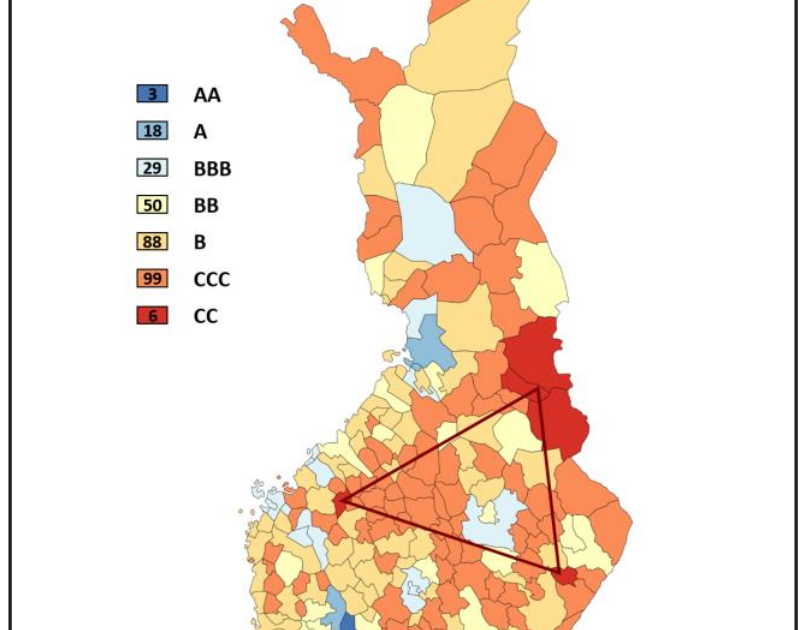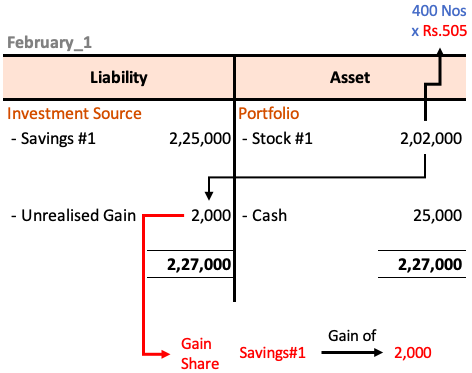Your Escape To The Country: Considerations Before You Relocate

Table of Contents
Financial Factors in Your Country Escape
Relocating to the countryside often involves significant financial adjustments. Understanding these changes upfront is crucial for a stress-free move.
Assessing Your Budget
Before you even start looking at charming cottages or sprawling farms, a realistic budget is essential.
- Cost of Living Comparison: Carefully compare the cost of living in your current location with your target rural area. This includes housing (often significantly higher or lower depending on the area), property taxes, utilities (which can vary greatly depending on the location and the type of property), transportation (consider the increased fuel costs associated with longer commutes or the need for a more robust vehicle), and groceries.
- Income Considerations: Will you maintain your current job with a long commute, or seek new employment opportunities in your rural area? Research the job market in your target location. Self-employment opportunities might be abundant in some rural areas, but require careful planning and a solid business plan.
- Emergency Fund: Life in the country can throw unexpected curveballs. A larger-than-usual emergency fund is crucial to cover unforeseen expenses like home repairs (older rural properties often require more maintenance), vehicle maintenance, or unexpected medical costs, given that healthcare access may be more limited.
- Financing Options: Explore mortgage options specifically tailored for rural properties. Research potential grants or loans designed to support rural relocation. Some local or regional governments offer incentives to attract new residents.
Property Costs and Taxes
Property prices and taxes in rural areas can vary dramatically. Thorough research is paramount.
- Property Price Research: Use online real estate portals and work with local real estate agents to understand the average property prices in your desired area. Remember to factor in potential hidden costs.
- Property Taxes and Maintenance: Rural property taxes can be unexpectedly high or low compared to urban areas. Also, factor in ongoing maintenance costs for larger properties. Older homes may require substantial renovation or repair work.
- Rural Property Tax Programs: Investigate potential tax exemptions or programs specifically for rural properties or new residents. These can significantly impact your overall cost.
Lifestyle and Practical Considerations for Your Country Move
Beyond the finances, your lifestyle will undergo a significant shift. Careful consideration of these practical aspects is key.
Commute and Transportation
Commuting from a rural location to a city job can be a major commitment.
- Commute Analysis: If you plan to keep your city job, analyze your commute meticulously. Consider the distance, travel time, and fuel costs. This might necessitate a vehicle suitable for rural roads and potentially longer journeys.
- Transportation Options: Public transportation is often limited in rural areas. Assess the reliability of public transport or the need for a personal vehicle that can handle various terrains and weather conditions.
- Increased Travel Time and Costs: Factor in significantly increased travel times and costs compared to urban living. This includes not just commuting but also shopping trips and accessing other amenities.
Access to Amenities and Services
Rural life often means a trade-off in terms of convenience.
- Essential Services Availability: Research the availability of essential services: healthcare (hospitals, doctors, pharmacies), schools, grocery stores, and reliable internet access. This is especially crucial if you have children or require regular medical care.
- Distance to Services: Consider the distance to these services and the time commitment involved in accessing them.
- Service Quality: Evaluate the quality of local services compared to your current location. Rural areas may offer a smaller selection and potentially longer wait times.
Community and Social Life
Rural communities offer a unique sense of belonging, but also present challenges.
- Community Involvement: Explore the social aspects of rural life – local community events, social groups, and the potential for strong neighborly relationships.
- Combating Isolation: Consider the potential for social isolation and plan ways to build a new social network in your new community. Volunteer work or joining local clubs can be a great way to meet people and build connections.
- Community Resources: Research opportunities for volunteering and community involvement to become integrated into the local fabric.
Essential Preparations Before Your Country Escape
A well-structured plan is essential for a smooth transition.
Thorough Research and Planning
Don't rush into this life-changing decision.
- In-depth Area Research: Conduct in-depth research on specific rural areas that genuinely align with your preferences and needs. Visit potential areas, talk to residents, and get a feel for the community.
- Detailed Checklist: Create a detailed checklist of tasks, including selling your current property, finding a new home, transferring utilities, and notifying relevant institutions of your address change.
- Realistic Timelines: Set realistic timelines and milestones for each stage of the relocation process. Relocating to a rural area often takes longer than anticipated.
Securing Housing and Utilities
Arrange these well in advance to avoid delays.
- Housing Options: Research available housing options in your target area: houses, apartments, or rentals. Understand the rental market and property availability in your chosen location.
- Utility Connections: Arrange for essential utilities (electricity, water, gas, internet) to be connected well in advance of your move-in date. Contact service providers to understand connection times and any associated fees.
- Service Provider Research: Thoroughly research different service providers in your new area to ensure you are selecting the best value and service.
Legal and Administrative Aspects
Don't underestimate the paperwork involved.
- Legal Advice: Consult with legal professionals about property transactions, contracts, and any other relocation-related paperwork.
- Rural-Specific Regulations: Understand any specific regulations related to moving to a rural area, including building permits or zoning regulations.
- Address Change Notification: Update your address and contact information with all relevant institutions and service providers (banks, insurance companies, government agencies).
Making Your Escape to the Country a Success
Successfully navigating "Your Escape to the Country" requires a blend of careful financial planning, realistic lifestyle adjustments, and thorough preparation. By thoughtfully considering the key aspects discussed above—from budgeting and property research to community integration and logistical arrangements—you can significantly increase your chances of a smooth and fulfilling relocation. Remember, a well-planned escape to the country will not only grant you the tranquility and peace you seek but also a stronger sense of belonging and a higher quality of life. Start planning your escape to the country today! With careful consideration of these key factors, you can make your dream of rural living a reality.

Featured Posts
-
 Escape To The Country Budgeting For Your Rural Lifestyle
May 24, 2025
Escape To The Country Budgeting For Your Rural Lifestyle
May 24, 2025 -
 Avoid Memorial Day Travel Chaos Best And Worst Flight Days In 2025
May 24, 2025
Avoid Memorial Day Travel Chaos Best And Worst Flight Days In 2025
May 24, 2025 -
 Konchita Vurst Ta Yevrobachennya 2025 Yiyi Prognoz Na Chotirokh Peremozhtsiv
May 24, 2025
Konchita Vurst Ta Yevrobachennya 2025 Yiyi Prognoz Na Chotirokh Peremozhtsiv
May 24, 2025 -
 Escape To The Country Balancing Rural Life With Modern Amenities
May 24, 2025
Escape To The Country Balancing Rural Life With Modern Amenities
May 24, 2025 -
 Hawaii Keiki Showcase Artistic Talents Sew A Lei For Memorial Day Poster Contest
May 24, 2025
Hawaii Keiki Showcase Artistic Talents Sew A Lei For Memorial Day Poster Contest
May 24, 2025
Latest Posts
-
 Amundi Djia Ucits Etf Net Asset Value Nav Explained
May 24, 2025
Amundi Djia Ucits Etf Net Asset Value Nav Explained
May 24, 2025 -
 Amundi Djia Ucits Etf A Guide To Net Asset Value Nav
May 24, 2025
Amundi Djia Ucits Etf A Guide To Net Asset Value Nav
May 24, 2025 -
 Amundi Dow Jones Industrial Average Ucits Etf Monitoring And Utilizing Nav Data
May 24, 2025
Amundi Dow Jones Industrial Average Ucits Etf Monitoring And Utilizing Nav Data
May 24, 2025 -
 The Importance Of Net Asset Value Nav In The Amundi Dow Jones Industrial Average Ucits Etf
May 24, 2025
The Importance Of Net Asset Value Nav In The Amundi Dow Jones Industrial Average Ucits Etf
May 24, 2025 -
 Interpreting Net Asset Value Nav For The Amundi Dow Jones Industrial Average Ucits Etf
May 24, 2025
Interpreting Net Asset Value Nav For The Amundi Dow Jones Industrial Average Ucits Etf
May 24, 2025
